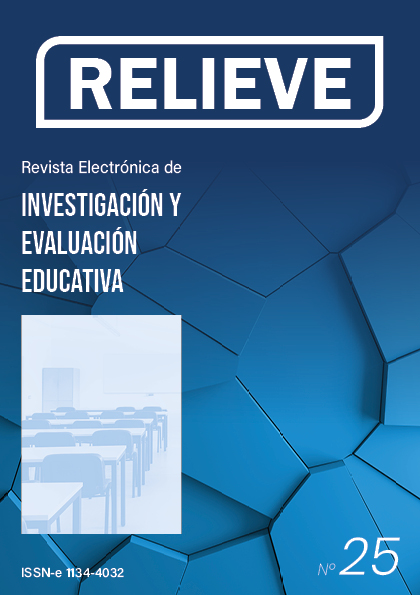External placements from the perspective of collaborating companies
DOI:
https://doi.org/10.7203/relieve.25.1.13189Keywords:
External placements, higher education, education work relationship, corporate social responsibilityAbstract
Introduction: The partnership between higher education and the labour market is a prerequisite for improving graduates’ employment opportunities. However, this partnership is not always as fluid as it should be, sometimes because universities do not understand what companies expect from the collaboration and forget that companies are not NGOs; other times because companies are not aware of the potential benefits and impacts they can derive from the partnership. This paper sheds light on the perception of this collaboration held by the entities collaborating with the university in placements, and uncovers their motivations and demands. Methodology: Based on the literature review of motivations, impacts and benefits associated with university–business partnerships, semi-structured interviews were conducted with a sample of entities collaborating in external practices with Jaume I University, following a cuota sampling design. Results: The main results obtained from the content analysis show that the main motivations driving entities to collaborate are the principles of corporate social responsibility, although underlying this motivation is the selection of potential future employees. The demands organisations made include improving the quality, quantity and forms of relationship between the partners, and the opportunity to enjoy the benefits of using university services. Discussion: In the field of Spanish academia, the collaboration between university and business generally seems to be discussed as a one-way relationship. Universities show a certain lack of interest in partnerships, and their concern appears to focus more on assigning students to placements rather than on their specific suitability. In addition, work placement practices are often designed by academics who fail to consider the real needs of the labour market.
Downloads
Downloads
Published
How to Cite
Issue
Section
License
The authors grant non-exclusive rights of exploitation of works published to RELIEVE and consent to be distributed under the Creative Commons Attribution-Noncommercial Use 4.0 International License (CC-BY-NC 4.0), which allows third parties to use the published material whenever the authorship of the work and the source of publication is mentioned, and it is used for non-commercial purposes.
The authors can reach other additional and independent contractual agreements, for the non-exclusive distribution of the version of the work published in this journal (for example, by including it in an institutional repository or publishing it in a book), as long as it is clearly stated that the Original source of publication is this magazine.
Authors are encouraged to disseminate their work after it has been published, through the internet (for example, in institutional archives online or on its website) which can generate interesting exchanges and increase work appointments.
The fact of sending your paper to RELIEVE implies that you accept these conditions.














